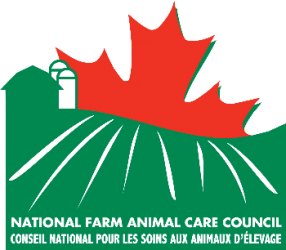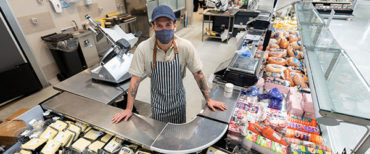RCC renewing focus on animal welfare through the National Farm Animal Care Council’s multilateral approach
March 29, 2021Retail Council of Canada (RCC) and its grocery members are committed to advancing animal welfare in Canada. To further this commitment, RCC is renewing and revamping its approach to focus on multi-stakeholder collaborative processes for decision-making, supporting the wide variety of comprehensive animal care Codes of Practices developed under the National Farm Animal Care Council (NFACC).
NFACC is the only group in the world that brings together animal welfare groups, retailers, government, veterinarians, academics, and farmers under a science-informed and consensus-based decision-making model for advancing farm animal welfare. RCC sits on NFACC’s Board of Directors, and RCC grocery members are represented and actively participate in the development of NFACC Codes. Codes of Practice developed through NFACC promote sound management and welfare practices through recommendations and requirements for housing, care, transportation, processing, and other husbandry practices.
RCC will pursue and make commitments solely through NFACC, thus removing previous commitments on sow housing and cage-free eggs, and RCC members will continue to make independent decisions on which products they source. While RCC is committed to ongoing dialogue with animal rights groups, academics, farmers, and other industry partners both within and outside of NFACC, experience has taught that stakeholders are best able to influence change collaboratively because of the support and participation of all parties involved.
The industry has made significant progress in advancing animal welfare in recent years, and this work is ongoing:
- Code of Practice for the Care and Handling of Pigs, initiated by the Canadian Pork Council (CPC), was completed in 2014. It includes recommendations and requirements for husbandry practices, transportation, feed and overall animal health. Since then, the proportion of sows housed in group housing has more than tripled.
- Code of Practice for the Care and Handing of Pullets and Laying Hens, initiated by the Egg Farmers of Canada, was completed in 2017. In addition to advancing welfare requirements in key areas such as barn environment, health, and husbandry practices as well as handling and transportation, the Code of Practice mandates the phase out of conventional cages. This move represents the most significant change ever to egg production in Canada. Since its inception, the proportion of hens housed in alternative methods of egg production has more than doubled.
- Work to develop the first Code of Practice for the Care and Handling of Farmed Salmonids, initiated by the Canadian Aquaculture Industry Alliance, promoting responsible animal care standards for farmed finfish in Canada.
NFACC welcomes RCC’s commitment to renew its focus on NFACC’s Code development process. NFACC brings together diverse stakeholder groups to review and improve industry practices as they relate to animal welfare. The Code process involves the incorporation of available science and identifies areas where further research is needed; as well it provides a framework for Code based auditing. The Codes provide guidance to industry and assurances to the Canadian public regarding continual efforts and support mechanisms related to ongoing improvements in the welfare of production animals.
Jackie Wepruk, NFACC General Manager


